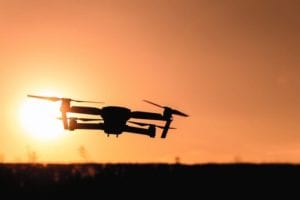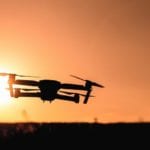An assistant professor at the University of Nebraska has shared more details about his involvement in the Biometric Recognition and Identification at Altitude and Range (BRIAR) program that is now underway at the Intelligence Advanced Research Projects Activity (IARPA). IARPA first announced the BRIAR program in 2019 and solicited submissions in 2020 before moving forward with the first phase of the project in early 2022.

The University of Nebraska is involved as a member of the Intelligent Automation team, which includes the University of Maryland College Park and Resonant Sciences in addition to University of Nebraska teams at both the Lincoln and Omaha campuses. The Nebraska teams are running under the direction of Benjamin Riggan, an electrical and computer engineering assistant professor and a former research scientist at the US Army Research Lab.
With BRIAR, IARPA is trying to find a way to use computer vision tech to identify people at extremely long distances, and in harsh conditions. For example, intelligence agencies would like to be able to identify someone from a watchtower or an overhead drone, but need to know that the scan is accurate despite the distance and through any atmospheric interference. In that regard, Riggan focused primarily on nighttime facial recognition during his time at the Army Research Lab, and his expertise with distorted and low-quality thermal images is expected to be particularly useful as the team tries to refine its system.
The first Phase of the program is scheduled to last 18 months, and is geared toward whole-body identification. That means that the researchers will be trying to identify people based on body features that go beyond the face, such as gait or the distance between someone’s shoulder and elbow. The researchers are hoping that those efforts will return results that are more accurate than faces alone, especially when those faces are obscured.
The University of Nebraska team could receive as much as $1 million over the course of all three phases if it is selected to continue with the program. The team (dubbed WatchID) is recruiting hundreds of volunteers to test its technology in different circumstances.
Source: Nebraska Today
–
June 29, 2022 – by Eric Weiss







Follow Us